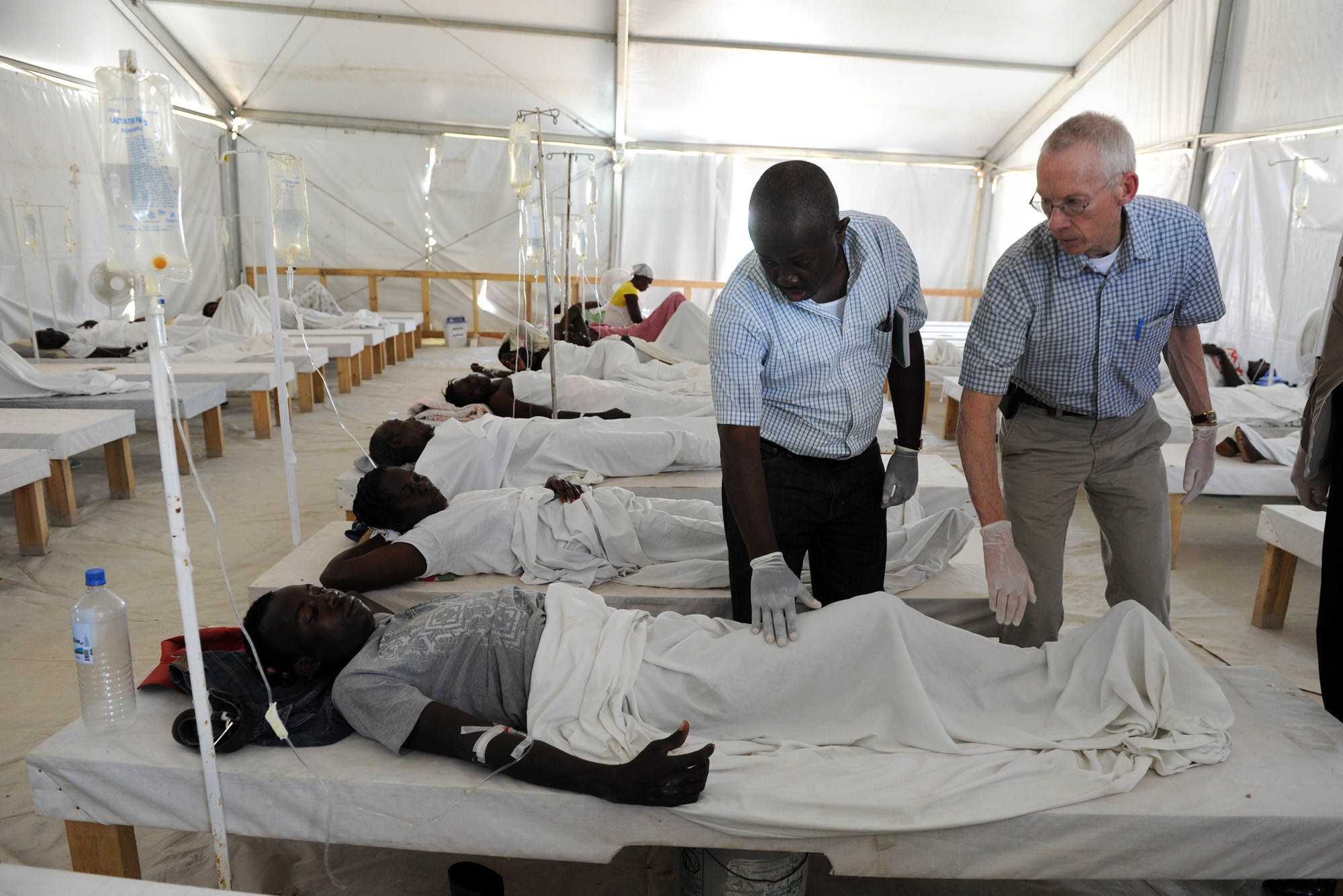2020 marks ten years since UN peacekeepers brought cholera to Haiti. The country is still recovering, and yet, the UN refuses to take any legal responsibility or pay any compensation to victims.
The spread of cholera in Haiti infected 800,000 people, which constitutes almost ten per cent of the Haitian population. It killed at least 10,000 people.
At this point, an apology is not enough. Ten years of suffering caused by the one organisation which was supposed to support Haiti is unacceptable.
In The Guardian Jacob Kushner argues that compensation is what the victims want, writing that this fight against the UN will not end it is received. The Haitians have lost so much in the last decade. Compensation is a fair request, so why is the UN not stepping up and taking full responsibility?
In a backlash against the UN, thirteen UN rights monitors wrote a letter of criticism to the UN Secretary-General, António Guterres, in an attempt to get some kind of response from the UN. The monitors wrote about the ‘illusory’ promises made by the UN which pledged to raise $400m for the cholera clean-up mission when in actuality, it only raised $21m and subsequently spent $3m of this.
Throughout the Haitian cholera epidemic, scientific studies and media reports were made. These studies traced the root of the epidemic to the UN Nepalese peacekeepers originally sent to Haiti to aid with the aftermath of the 2010 earthquake.
The UN was accused of failing to test its own peacekeepers for cholera, even though it was widely understood that cholera is endemic in Nepal and, therefore, there was a very high likelihood of the peacekeepers carrying it. Studies showed that it would only have cost the UN $2,000 to test the peacekeepers before allowing them to enter an already vulnerable country.
As a developing country, Haiti was not equipped for any kind of disaster, let alone three in a row: the 2010 earthquake, the cholera epidemic, and then Storm Tomas, a huge flood which spread the bacteria in the flood water even further. Instead of aiding the situation, by not being as thorough as they had resources to be, the UN worsened matters.
In March, The Guardian interviewed Marie Millande Tulmé, who investigated the root of the epidemic as head nurse for Haiti’s Central Plateau region at the time. Tulmé traced it back to the UN peacekeepers’ bathroom, which was depositing waste straight into the river.
For six years, the UN attempted to cover up the whole scandal, denying the media reports and the scientific studies tracing the disease to the UN base in Haiti. It even took more drastic measures, such as dumping the waste in a different area, further contaminating Haiti. It is thought that it destroyed any evidence that cholera began at its base by removing leaking pipes and draining the used septic tanks.
Philip Alston, the leading signatory of the letter, felt that there was ‘an element of racism’, as the crisis occurred in Haiti and not in ‘a white community in a country with any standing globally’. The UN was permitted to take no action without any backlash.
The ‘apology’ in 2016 by Ban Ki-moon, the UN Secretary-General at the time, was regarded by Alston as only a ‘half-apology’ as still, no legal responsibility was taken. Ki-moon’s statement was carefully worded: ‘We apologize to the Haitian people. We simple did not do enough with regards to the cholera outbreak and spread in Haiti. We are profoundly sorry for our role.’
The UN funded the vaccination of 1.7 million people against the disease, but this is not fair compensation for the damage already caused. The UN did not do enough to curb the effects of the illness: it was the local health workers and aid groups that did everything the UN should have done.
Haiti’s last case of cholera was only just reported in January 2019, but Haiti must wait two more years to be pronounced cholera free. Compensation is needed for victims of the UN’s mistake. Even if it’s ten years too late.
Ana Hill Lopez-Menchero
Image: Wikimedia Commons.

